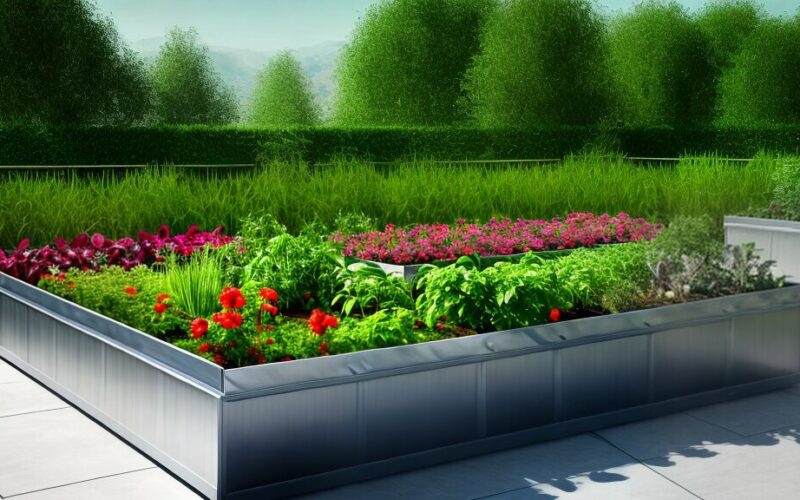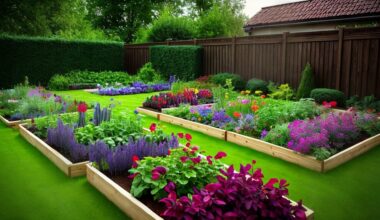Are you considering using galvanized steel for your food garden? You may be wondering if it is safe to grow food in this material. In this section, we will explore the safety concerns and address them, providing you with important information to help you make an informed decision.
Galvanized steel is commonly used for a wide range of applications, including agriculture. The process of galvanization involves coating steel with a layer of zinc to protect it from rust and corrosion. While galvanized steel is durable and long-lasting, there are potential risks associated with using it for food growing.
Some people are concerned about the potential for zinc or other chemicals in the galvanized coating to leach into the soil and contaminate their food. However, with proper precautions, using galvanized steel for food growing can be safe and effective.
Key Takeaways:
- Galvanized steel is a common material used for a wide range of applications, including agriculture.
- The process of galvanization involves coating steel with a layer of zinc to protect it from rust and corrosion.
- While there are some potential risks associated with using galvanized steel for food growing, with proper precautions, it can be safe and effective.
Understanding Galvanized Steel and its Potential Risks
If you’re considering using galvanized steel containers for growing food, it’s important to understand the potential risks associated with this material.
Galvanized steel is steel that has been coated with a layer of zinc to protect it from rust and corrosion. While this coating provides excellent durability and longevity, it can also present some risks when used for growing food.
One potential risk is the presence of chemicals that may leach from the galvanized coating into the soil and ultimately into your plants. Zinc, in particular, can be toxic to plants in high concentrations. Additionally, galvanized steel may contain other heavy metals that can be harmful to both plants and humans if ingested.
It’s important to note that not all galvanized steel is created equal. The process of galvanization can vary, and some methods may be safer than others. For example, some manufacturers use a process called hot-dipping, which involves dipping the steel into molten zinc. This method is generally considered safe for food growing, as the zinc coating is tightly bonded to the steel and is less likely to leach into the soil.
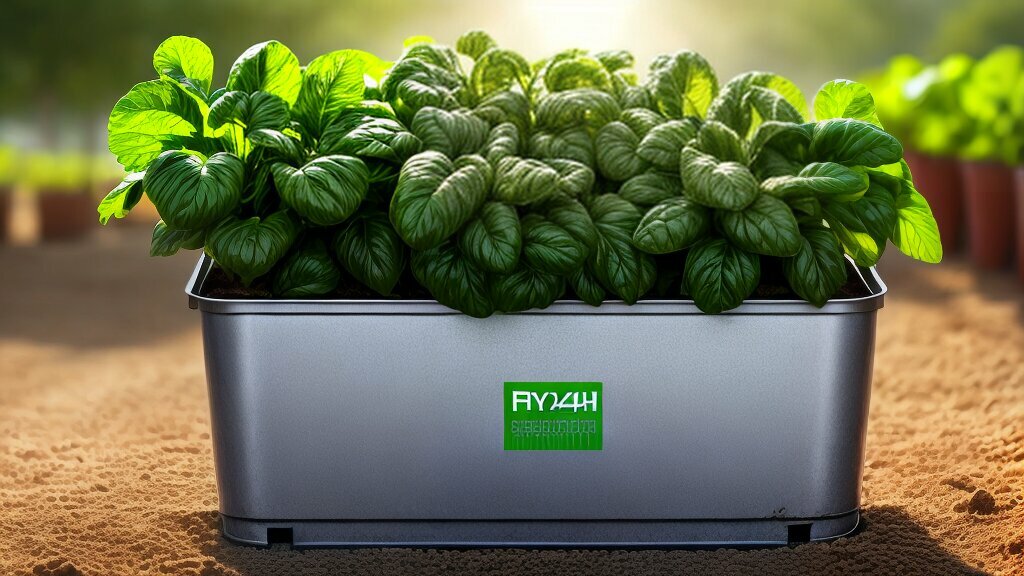
To minimize the risks associated with using galvanized steel for food growing, it’s important to take certain precautions. First and foremost, make sure that any galvanized containers you use are intended for food growing and are labeled as such. Avoid using old or damaged containers, as these may be more prone to leaching.
You can also take steps to reduce the likelihood of zinc and other heavy metals leaching into the soil. For example, you can line your galvanized containers with a food-safe liner, such as plastic or parchment paper, before adding soil and plants. This will create a barrier between the soil and the galvanized coating, preventing direct contact and reducing the risk of leaching. Additionally, it’s a good idea to monitor the pH levels in your soil, as highly acidic soil can increase the likelihood of leaching.
In conclusion, while galvanized steel can be a durable and long-lasting option for growing food, it’s important to understand the potential risks associated with this material and to take appropriate precautions to ensure the safety of your plants and yourself.
Best Practices for Using Galvanized Steel in Food Growing
If you’re considering using galvanized steel for safe food cultivation, it’s important to follow best practices to ensure the health of your plants and your family. Here are some tips:
- Choose high-quality galvanized steel: Look for a reputable supplier that uses quality materials for their galvanized steel products. This will help to minimize the risk of contaminants and ensure the long-term safety of your garden.
- Avoid using galvanized steel for acidic soil: Acidic soil can cause galvanized steel to corrode, releasing potentially harmful zinc into the soil. If you’re growing plants that require acidic soil, consider using a different type of material for your containers.
- Line galvanized steel containers: To further minimize the risk of contaminants, you can line galvanized steel containers with a food-grade liner. This will protect your plants from any potential leaching of materials from the container.
Overall, using galvanized steel raised beds for growing food is a safe and effective option, as long as you follow these best practices. By choosing high-quality materials and taking precautions to minimize risk, you can enjoy a healthy and thriving garden.
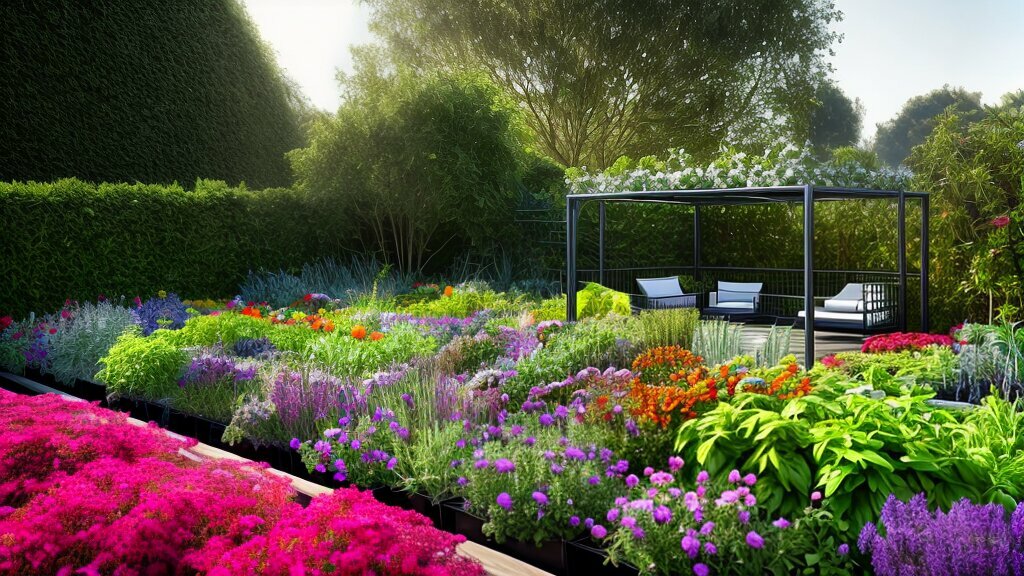
Galvanized Steel for Organic Food Production
If you are interested in using galvanized steel for organic food production, you may be wondering if it is safe and allowed by regulations. The good news is that galvanized steel is safe to use in organic farming and is allowed by the USDA organic regulations.
The USDA National Organic Program (NOP) allows the use of galvanized steel as a material in organic crop production, as long as the galvanizing process does not involve the use of toxic materials.
The NOP requires that any substances used in organic farming, including materials such as galvanized steel, must be listed on the National List of Allowed and Prohibited Substances. The National List is maintained by the USDA and is periodically updated to include new materials that meet the organic standards and exclude those that do not.
The use of galvanized steel in organic farming is not only safe but can also offer benefits such as durability, longevity, and resistance to corrosion.
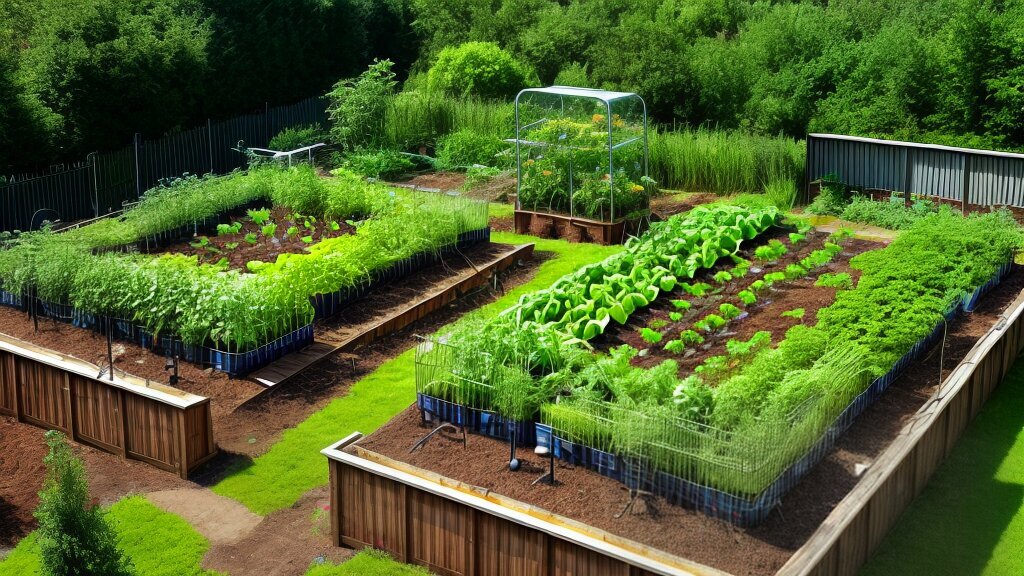
When using galvanized steel for organic food production, it is important to ensure that the galvanizing process does not involve the use of toxic materials. It is also important to maintain the pH level of the soil in the range of 5.5 to 7.5 to prevent the leaching of zinc into the soil, which can negatively affect plant growth and health.
Overall, galvanized steel can be a safe and effective material for organic food production when used properly and according to regulations.
Conclusion
Congratulations! You’ve made it to the end of the article and now have a better understanding of using galvanized steel for growing food. So, is galvanized steel safe to grow food in? The answer is yes, as long as you take the necessary precautions and follow best practices.
Remember to choose high-quality galvanized steel containers and avoid using them for acidic soil or water. If you’re concerned about potential risks, consider using a barrier between the soil and the galvanized steel. Additionally, be sure to wash your hands after handling galvanized steel and avoid inhaling any dust or particles.
Final Thoughts
Using galvanized steel for food growing has many benefits, including durability and longevity. With proper care and attention, galvanized steel can be a safe and effective material for growing all sorts of fruits, vegetables, and herbs. By following the best practices outlined in this article, you can enjoy a bountiful and healthy harvest for years to come!

